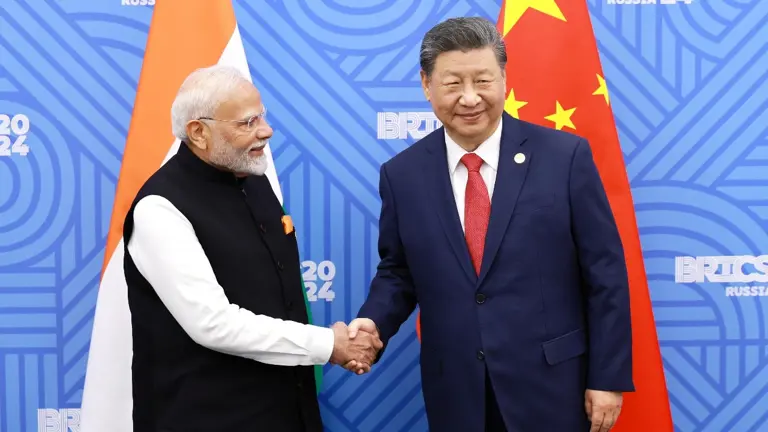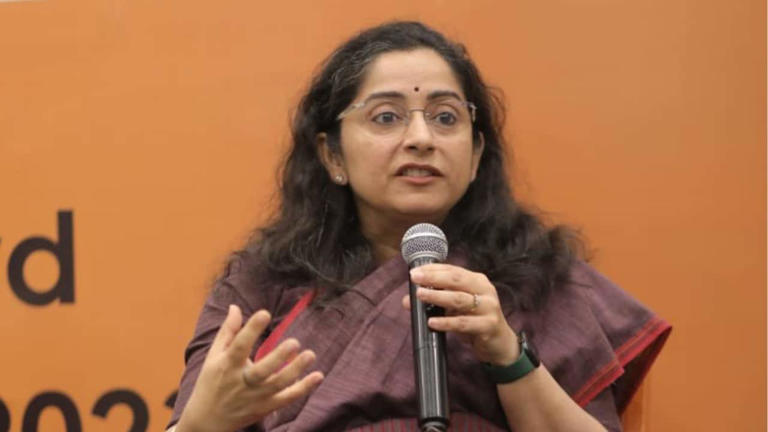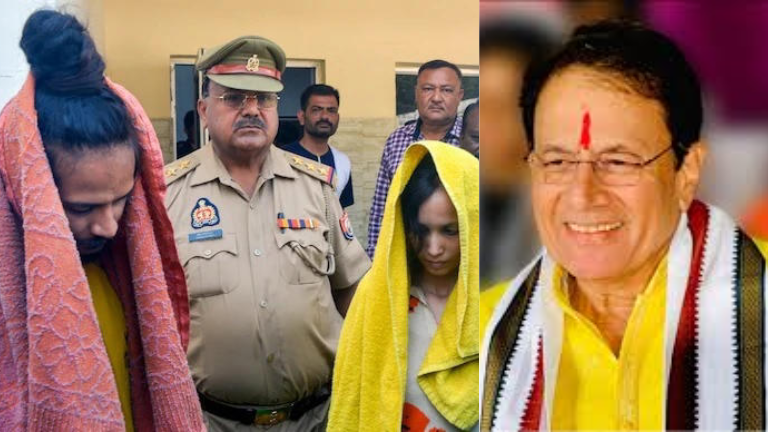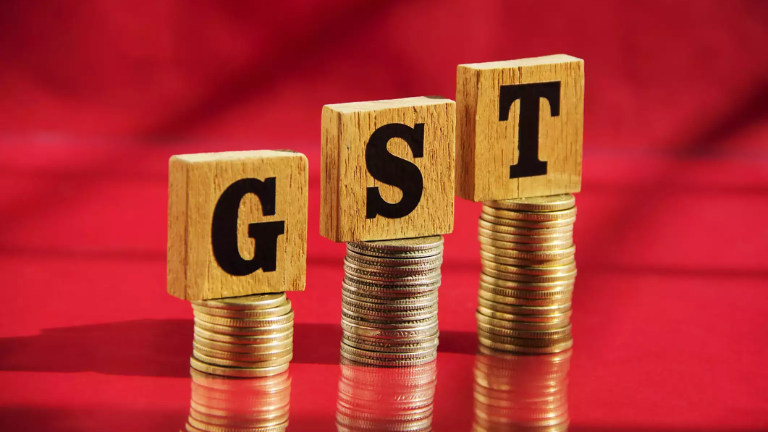Can Friendship with Xi Jinping Help Resolve India-China Relation? PM Modi Responds
Prime Minister Narendra Modi has shed light on India-China relations, emphasizing that while tensions between neighbors are natural, dialogue remains the only path to ensuring that differences do not escalate into disputes. Speaking on American podcaster Lex Fridman’s show, PM Modi expressed confidence that with sustained diplomatic efforts, the trust, enthusiasm, and energy in India-China relations would gradually return.
His remarks come amid a long-standing four-year military standoff between India and China, which began with the Galwan Valley clash in May 2020. However, recent diplomatic breakthroughs, including an agreement on border patrolling along the Line of Actual Control (LAC) in eastern Ladakh, signal a shift towards de-escalation in India-China relations.
India-China Relation: A History of Strained Ties
India and China, two of Asia’s largest economies and military powers, share a complex relationship marked by periods of cooperation and conflict. While trade and economic partnerships have grown, border tensions have frequently disrupted diplomatic ties, affecting India-China relations.
The most significant flashpoint in recent years was the Galwan Valley incident in May 2020, where Indian and Chinese troops engaged in a deadly clash. Since then, both nations have remained in a prolonged military standoff, with tensions particularly high in eastern Ladakh.
However, on October 21, 2023, India announced a major breakthrough, stating that an agreement had been reached with China regarding patrolling norms along the LAC. This development was widely seen as a step toward restoring stability in India-China relations.
PM Modi on Restoring Normalcy in India-China Relations
Addressing concerns about strained ties, PM Modi stressed the importance of dialogue and expressed optimism about restoring normal relations between the two countries.
“In 2020, the incidents along the border created significant tensions between our countries. However, after my recent meeting with President Xi, we have seen a return to normalcy at the border. We are now working to restore conditions to how they were before 2020,” he stated.
His remarks referred to a key diplomatic interaction in October 2023, when he met Chinese President Xi Jinping on the sidelines of the BRICS Summit in Russia’s Kazan. This was the first meeting between the two leaders in five years and played a critical role in securing a bilateral agreement on disengagement along the LAC, improving India-China relations.
During their discussion, both leaders endorsed new mechanisms for dialogue, emphasizing the need to move beyond hostilities and rebuild mutual trust.
The Path Forward: Dialogue Over Discord
PM Modi underlined that occasional disagreements between neighboring countries were inevitable, comparing international relations to family dynamics.
“Our relationship should remain just as strong in the future, and it should continue to grow. Differences are natural when two neighboring countries exist. Not everything is perfect. Instead of discord, we emphasize dialogue because only through dialogue can we build a stable and cooperative relationship that serves the best interests of both nations.”
The Prime Minister acknowledged that the border disputes between India and China were long-standing, but he remained hopeful about progress, noting that while “trust, enthusiasm, and energy will return,” it would require time and patience in India-China relations.
What Does This Mean for India-China Relation?
PM Modi’s remarks signal a strategic shift in India’s approach to China, focusing on diplomacy and gradual normalization of ties rather than prolonged confrontation. Here’s what his statements indicate about the future trajectory of India-China relations:
1️⃣ De-escalation of Border Tensions – With both sides agreeing on patrolling and disengagement protocols, there is a clear effort to avoid further confrontations along the LAC. This could lead to a steady withdrawal of military deployments in sensitive regions, positively impacting India-China relations.
2️⃣ Reactivation of Bilateral Dialogue Mechanisms – The revival of diplomatic channels will allow both nations to address disputes proactively, reducing the risk of future border standoffs and improving India-China relations.
3️⃣ Economic Cooperation Despite Political Differences – India and China remain key trading partners, and restoring stable relations could pave the way for economic collaborations, particularly in sectors like technology, manufacturing, and infrastructure, strengthening India-China relations.
4️⃣ A Measured, Step-by-Step Approach – While full normalization of ties may take time, both nations appear committed to a phased resolution of their differences, ensuring India-China relations remain on a path toward stability.
Challenges Ahead: Can Diplomacy Prevail?
While PM Modi’s remarks reflect optimism, several challenges remain in India-China relations:
🔸 Trust Deficit – The Galwan Valley conflict left a deep impact on bilateral relations, and rebuilding trust will be a slow process.
🔸 Border Uncertainties – Although agreements have been signed, on-ground implementation remains key. Past disengagement efforts have been fragile, and any misstep could reignite tensions in India-China relations.
🔸 Geopolitical Rivalries – India and China remain rivals in global geopolitics, particularly in areas like the Indo-Pacific, South China Sea, and multilateral organizations. Strategic competition may continue despite diplomatic efforts to improve India-China relation.
Conclusion: A Fragile Yet Necessary Friendship
PM Modi’s statements suggest that India is taking a pragmatic approach to India-China relations—acknowledging differences but prioritizing dialogue over discord. His meeting with Xi Jinping in 2023 and subsequent agreements reflect a willingness to de-escalate tensions and restore stability.
However, while progress has been made, India-China relations remain fragile. The road ahead will require careful diplomacy, continued negotiations, and mutual confidence-building measures.
As both nations work towards rebuilding trust, one key question remains:
Will this renewed diplomatic effort be enough to bring lasting peace between Asia’s two giants? Only time will tell.
Only time will tell. Moving forward, both nations must focus on dialogue and patience for a peaceful and prosperous future.






